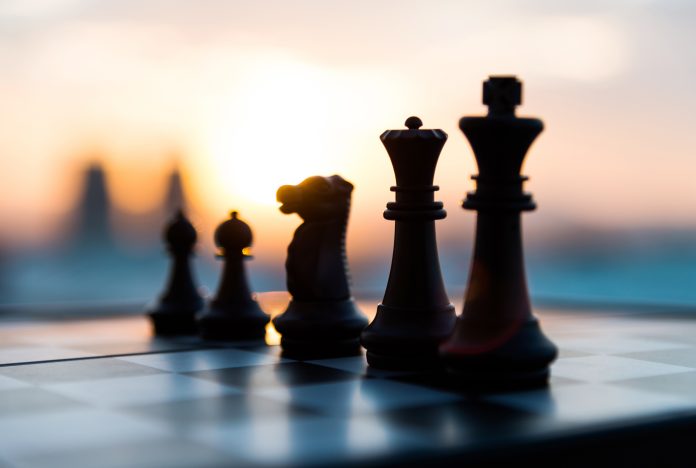Geoffrey Borg, the CEO of the International Mind Sports Association, offers a captivating insight into nurturing our future citizens through mind sports
The future of mind sports offers numerous opportunities to expand their reach and impact globally. It is estimated that the majority of the world’s population today is playing electronic, board or card games at various stages of their lives. The primary challenge is to harness this wealth of participation and transform it into higher intelligence and long-term life skills.
The key is promoting the educational and development benefits of mind sports to countries, their governments and their citizens. The message should emphasise how mind sports develop critical cognitive skills like strategic thinking, problem-solving, pattern recognition, and decision-making.
The benefits of engaging in mind sports
Engaging in mind sports has been shown to enhance academic performance, particularly in STEM subjects. Mind sports also foster social skills, teamwork, and sportsmanship, promoting a positive and supportive community. Additionally, they can help mitigate stress, anxiety, and depression by providing a healthy outlet for mental energy.
Mind sports incorporate insights from psychology, neuroscience, education, and technology to enhance their benefits and appeal. These invaluable skills translate directly to academic, business, career, and professional success. Several studies can be highlighted that demonstrate the measurable cognitive gains from playing mind sports and raise awareness of their educational value.
Raising awareness of mind sports’ educational value
How to achieve this?
- Introduce mind sports in an engaging, hands-on way:
- Host interactive demonstrations and workshops that allow students to try out different mind sports.
- Incorporate mind sports into existing school activities to pique students’ curiosity.
- Arrange for mind sports professionals to visit and share their experiences, strategies, and passion with students.
- Highlight the benefits and real-world application:
- Emphasise how mind sports develop critical cognitive skills like strategic thinking, problem-solving, and decision-making.
- Showcase how these skills translate to success in future careers.
- Share inspiring stories of how mind sports have transformed the lives of people, both personally and professionally.
- Foster a vibrant, supportive community
- Establish mind sports clubs, teams, and tournaments within the school to build a sense of camaraderie and healthy competition.
- Encourage peer-to-peer mentoring, where experienced students can guide and encourage newcomers.
- Organise mind sports-themed social events to cultivate a fun, inclusive culture.
- Provide accessible pathways and resources:
- Offer free or low-cost mind sports training and participation to remove financial barriers.
- Ensure that programmes are scheduled to accommodate diverse schedules and commitments.
- Leverage online and digital platforms to make training and practice more accessible and engaging.
- Recognise and reward student achievements:
- Celebrate accomplishments, both in competition and personal growth, through awards, scholarships, and public recognition.
- Establish mind sports-related academic credits or extracurricular credits to incentivise participation.
- Collaborate with local media to highlight the success stories of student mind sports participants.
Fostering more collaboration between the major mind sports
Another important challenge is encouraging greater collaboration between the major mind sports like chess, bridge, eSports, go and others; on April 19th, 2005, IMSA, the International Mind Sports Association, was founded in Berlin, Germany, by the representatives of the World Bridge Federation (WBF), World Chess Federation (FIDE), World Draughts Federation (FMJD), and International Go Federation (IGF).
IMSA grew to eight member federations in 2024 and has been instrumental in assisting its member federations in working together so that all these sports can amplify their collective impact and advance the common goals of expanding participation, improving training and coaching, and advocating for greater recognition and funding. It recently set up a Research and Development centre in Hangzhou, People’s Republic of China, and this collaborative research initiative will accelerate the understanding of mind sports’ benefits and inform evidence-based practices.
Shared initiatives between IMSA members include tournament partnerships, the exchange of best practices in technical, marketing, events organisation, social and development programs, and unified policy positions. Harnessing the synergies between mind sports is crucial for their continued growth and recognition by world sporting bodies like the International Olympic Committee, SportAccord, and, of course, governments globally.
The breadth and popularity of mind sports
It’s also worth noting the remarkable breadth and popularity of mind sports, which draw players at all levels – from passionate amateurs to world-class professionals. This diversity and inclusivity help make mind sports accessible and compelling to a broad audience. Mind Sports adapt to cater to diverse age groups, genders, abilities, and interests, making them more accessible to a wider audience.
The enduring appeal of classics like chess and bridge, which have retained devoted followings for decades, demonstrates the timeless nature of these sports. In July 2024, FIDE celebrated its 100th anniversary since its founding in July 1924. The sport itself is centuries old.
Newer mind sports like esports are rapidly gaining traction, especially among younger generations. eSports is now a multi-billion-dollar industry providing a major challenge to everybody in terms of how its potential can be harnessed.
The growth and expansion of mind sports
Highlighting this broad array of options helps attract new participants and support the mind sports community. At no other point in human history is the demand for intellectual capacity, curiosity, and creativity of its citizens so high, and mind sports can uniquely provide the training ground for these qualities. As the world continues to evolve, all these challenges will propel the growth, expansion, and collaboration of mind sports.











